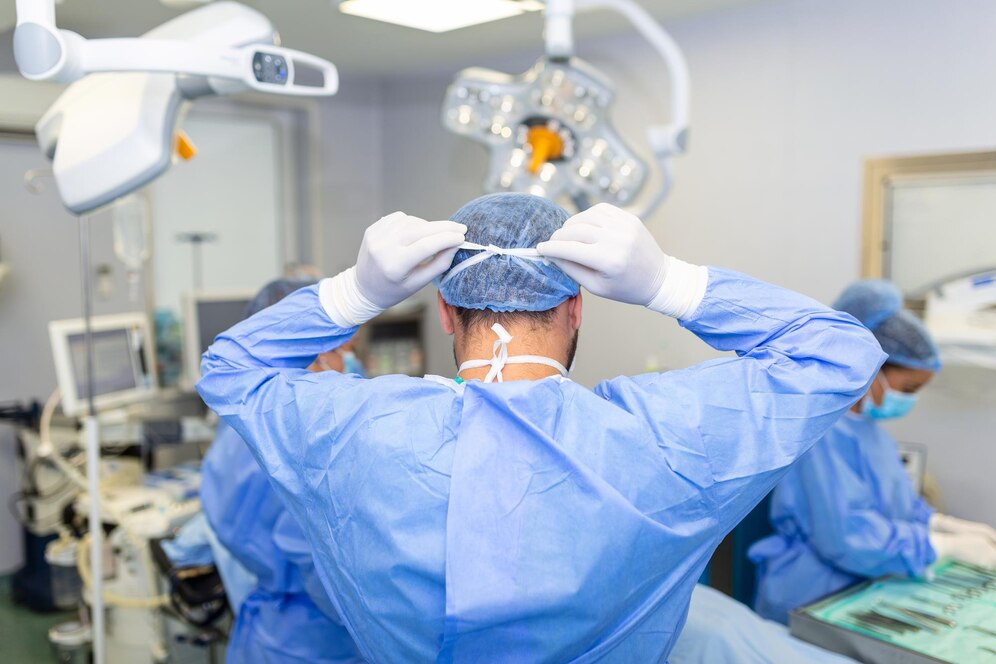
Laparoscopic surgery, often referred to as minimally invasive surgery, has revolutionized the field of surgery by allowing operations to be performed through small incisions rather than large openings. This technique uses a laparoscope, a thin tube with a camera and light at the end, to provide surgeons with a clear view of the inside of the body. The evolution of laparoscopic surgery has significantly reduced the trauma associated with surgical procedures, leading to quicker recovery times, less postoperative pain, and lower risk of infection compared to traditional open surgery.
The benefits of laparoscopic surgery are manifold. Patients typically experience shorter hospital stays, allowing them to return to their normal activities much sooner. The smaller incisions used in laparoscopic procedures result in minimal scarring, which is a considerable advantage for both cosmetic and medical reasons. Additionally, the precision of laparoscopic instruments allows for greater accuracy during surgery, which can improve outcomes and reduce the likelihood of complications. This advanced technique is particularly beneficial for procedures such as gallbladder removal, hernia repair, and appendectomies, among others.
Moreover, the development of laparoscopic surgery has paved the way for even more advanced techniques, such as robotic-assisted surgery. Robotic systems provide surgeons with enhanced dexterity and control, allowing for even more precise movements during complex procedures. This technological advancement continues to push the boundaries of what is possible in minimally invasive surgery, offering patients the benefits of reduced pain, faster recovery, and improved surgical outcomes. As laparoscopic and robotic techniques evolve, they are set to become the standard for a wide range of surgical procedures, further enhancing patient care and recovery.

Welcome to our comprehensive guide to gastrointestinal and coloproctology surgery, a resource designed to provide you with detailed information about surgical procedures related to the digestive system and the colon, rectum, and anus. These surgeries are crucial for treating a wide range of conditions, from common issues like hemorrhoids and diverticulitis to more complex diseases such as colorectal cancer and Crohn's disease. Understanding these procedures can help patients make informed decisions about their health and treatment options.
Gastrointestinal surgery encompasses a variety of procedures aimed at addressing issues within the digestive tract, including the esophagus, stomach, small intestine, liver, pancreas, and gallbladder. Common surgeries in this category include gastrectomies for stomach cancer, cholecystectomies for gallbladder removal, and pancreaticoduodenectomies (Whipple procedures) for pancreatic cancer. These operations can be performed using traditional open surgery or minimally invasive techniques such as laparoscopic and robotic surgery, which offer benefits like reduced recovery times and less postoperative pain.
Coloproctology surgery focuses specifically on disorders of the colon, rectum, and anus. This includes treatments for conditions like colorectal cancer, inflammatory bowel disease (Crohn's disease and ulcerative colitis), diverticulitis, and benign anorectal disorders such as hemorrhoids and fissures. Procedures in this field range from minimally invasive laparoscopic resections for colorectal cancer to simple outpatient procedures for hemorrhoids. Advances in surgical techniques, including enhanced recovery protocols and precision robotic surgery, have significantly improved patient outcomes and quality of life.

Welcome to SurgePro, your gateway to understanding specialized surgeries that address complex and unique medical conditions. Specialized surgeries encompass a broad spectrum of advanced procedures tailored to treat specific health issues that may not be effectively managed through conventional methods. These surgeries often involve cutting-edge technology and techniques, providing patients with more targeted, effective, and less invasive treatment options.
Among the specialized surgeries featured in SurgePro are those in fields such as neurosurgery, cardiovascular surgery, and orthopedic surgery. Neurosurgery includes procedures for treating conditions of the brain and spine, such as tumor removals, spinal decompressions, and deep brain stimulation. Cardiovascular surgery addresses issues related to the heart and blood vessels, including coronary artery bypass grafting (CABG), valve replacements, and minimally invasive techniques for repairing aortic aneurysms. Orthopedic surgery focuses on musculoskeletal issues, such as joint replacements, spinal fusions, and arthroscopic repairs, aimed at restoring function and alleviating pain.
By exploring SurgePro, patients and healthcare professionals alike can gain valuable insights into these specialized surgical options, helping to make informed decisions about treatment. Whether you're considering a procedure for a complex condition or seeking the latest advancements in surgical techniques, SurgePro offers a comprehensive overview of the innovations and expertise driving modern surgery. Discover how specialized surgeries can offer new hope and improved outcomes for a range of medical conditions.